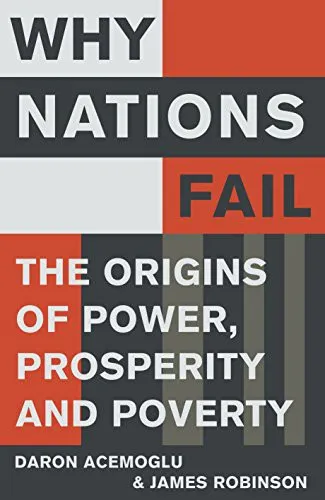2
mentions
mentions

Finished reading "Why Nations Fail" as part of Mark Zuckerberg's book club :) Good read, interesting topic. More https://www.goodreads.com/review/show/1393566633
— Andrej Karpathy
2015-10-13 on twitter.com
https://twitter.com/karpathy/status/653827949565644800
I read this as part of the Mark Zuckerberg book club :) Why are some nations rich and some poor? Is it geographical? Cultural? This book argues that, to a first order approximation, it is the economic and political institutions that influence this property, based on whether they are inclusive and pluralistic, or extractive, where a small elite rules over the population. The book goes over many examples of countries/regions throughout history, e.g. Maya, Rome, Venice, France/Spain/Britain/New World, and in modern days the focus is around South America, North vs. South America, Subsaharan Africa, and China. In each case, the authors point to the institutions as the source of the divide. In short, throughout history, small number of rich and powerful people have incentives to keep it that way. They do this by keeping the population misinformed (e.g. media control), conservative ("keep everything as is"), and by explicitly avoiding creative destruction that is core to sustained progress, but which threatens the status quo and political stability. In these countries there are no incentives for anyone to innovate, since anything you come up with will be extracted anyway, and in some cases might even get you in trouble (e.g. Dai Guofang example in China, along many others). In addition to all the stagnation and corruption, this also leads to more wars, and provides more incentives for unrest and military coups since there is more power to be gained in an authoritarian regime. The only escape are the development of pluralistic institutions with the formation of a broad coalition during critical junctures, which Britain was lucky to experience just before the Industrial Revolution. And yay Democracy and Capitalism. I also found interesting the doubt the book casts on foreign aid near the end, at least in presence of extractive institutions. I think I learned quite a bit while reading this book, but I wish the book was slightly less repetitive, that it flowed better, and that the authors were more specific and comprehensive on exactly how extractive institutions work since this is at the core of their argument. The discussion could have been more grounded when normally I felt it was slightly too high level, and could have used more stories. I say that not because I want fluffy stories, but because I think we remember them more easily - it makes for a better, less dry, and more memorable exposition. Lastly, I couldn't get rid of the feeling throughout the book that past events were highlighted in retrospect to neatly fit the core thesis, and the authors did not seem genuine enough to discuss other possibilities, or common theories that do not agree with theirs. Instead, they quickly and forcefully reject them. Hence, the book comes across as a possibly cherry-picked, one-sided argument that insists on being right without acknowledging its own faults or weak points. All that being said, recommended read overall! 4/5
— Andrej Karpathy
2015-10-13 on goodreads.com